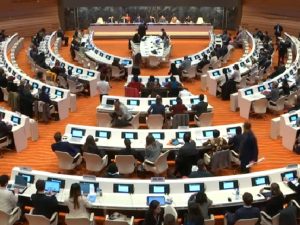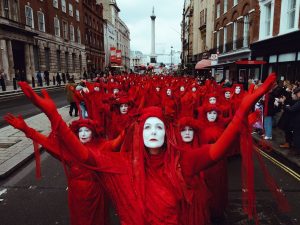Bangladesh’s new authorities on Wednesday opened an investigation into hundreds of enforced disappearances by security forces during the rule of ousted premier Sheikh Hasina.
This includes the notorious Rapid Action Battalion (RAB) paramilitary force. They’ve been accused of numerous rights abuses, and were sanctioned by the United States for their role in extrajudicial killings and enforced disappearances. Human Rights Watch (HRW) last year said security forces had committed “over 600 enforced disappearances” since Hasina came to power in 2009. HRW believe nearly 100 remain unaccounted for.
Many of those detained were from Hasina’s rivals, the Bangladesh Nationalist Party and Jamaat-e-Islami, the country’s largest Islamist party. In reference to Hasina’s administration, HRW said:
instead of independently and transparently investigating allegations of enforced disappearances, Bangladesh authorities harass and intimidate victims’ families. Families say that authorities repeatedly interrogate them about the whereabouts of their relatives despite missing person complaints lodged with the police.
HRW explained:
Officials threaten and pressure families to withdraw or revise their police reports to remove any evidence implicating security forces in the disappearance.
Hasina’s government consistently denied the allegations. They claimed that some of those reported missing had drowned in the Mediterranean while trying to reach Europe. Hasina fled to India by helicopter on August 5 after weeks of student-led protests forced her to quit, ending her iron-fisted 15-year rule.
‘Disappearances and torture’
The five-member committee, headed by retired high court judge Moyeenul Islam Chowdhury, will also investigate other paramilitary police units. A government order on late Tuesday said this would include , Border Guard Bangladesh (BGB).
The UN rights office says both the RAB and BGB forces have:
records of serious human rights violations, including enforced disappearances and torture and ill-treatment.
The commission, ordered to begin work by the interim government led by Muhammad Yunus, has 45 working days to submit its report.
Sanjida Islam Tulee, a coordinator of a group campaigning for the release of people detained under Hasina, welcomed the commission. Tulee heads the group called Mayer Daak (“The Call of Mothers”) and told Agence France-Presse (AFP):
Most importantly, the report needs to be published fully and no information is kept hidden.
Tulee said she wanted the commission to listen to every family without discrimination.
More than 600 people were killed in the weeks leading up to Hasina’s ouster. That was according to the United Nations rights team’s preliminary report, which also suggests that the toll was “likely an underestimate”.
The day after she fled, families gathered outside a military intelligence force building in Dhaka waiting desperately for their relatives. But, only a handful have been confirmed as released.
Bangladesh will see change
A law professor from Dhaka, Asif Nazrul spoke at a vigil last year for the disappeared, saying:
They [government] believe that by instilling fear among people, they would silence all and keep doing all the wrong things like stealing elections and plundering people’s money.
But this will change. They will have to answer for their crimes.
It appears the newly installed interim government is setting out to do just that.
Additional reporting by Agence France-Presse
Featured image via YouTube screenshot/Al Jazeera English
By The Canary




